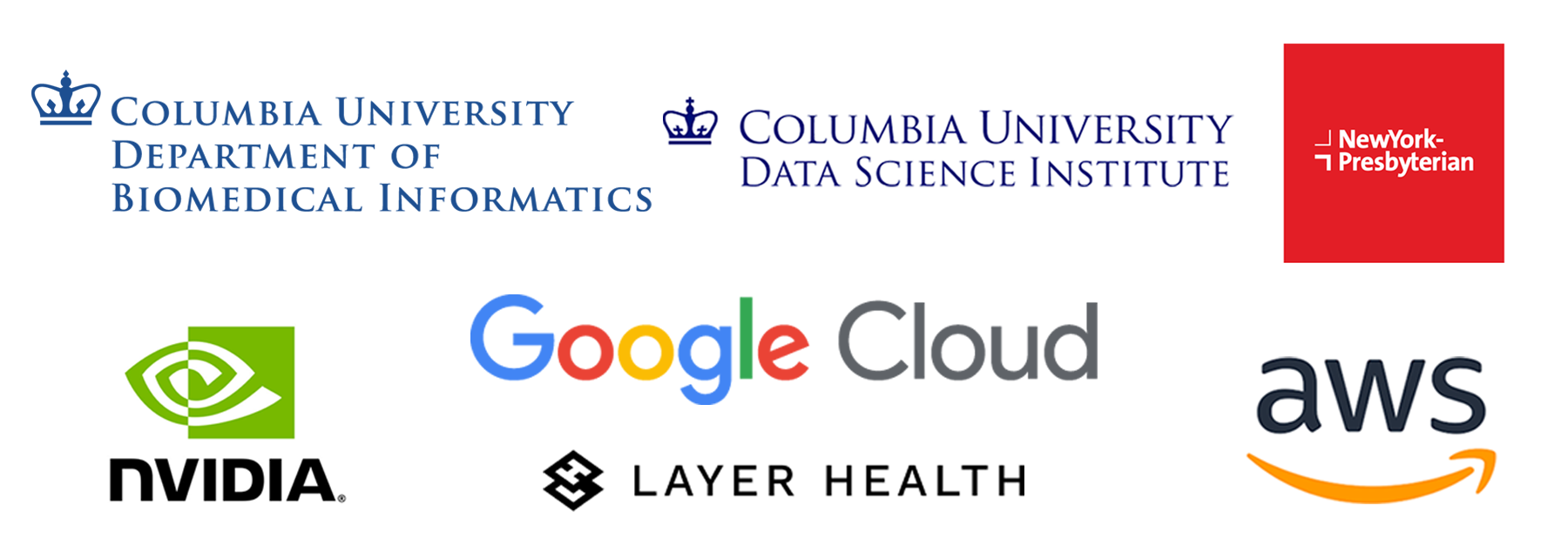AI at VP&S Workshop:
Foundation Models Across Scales: From Cells to Health Systems
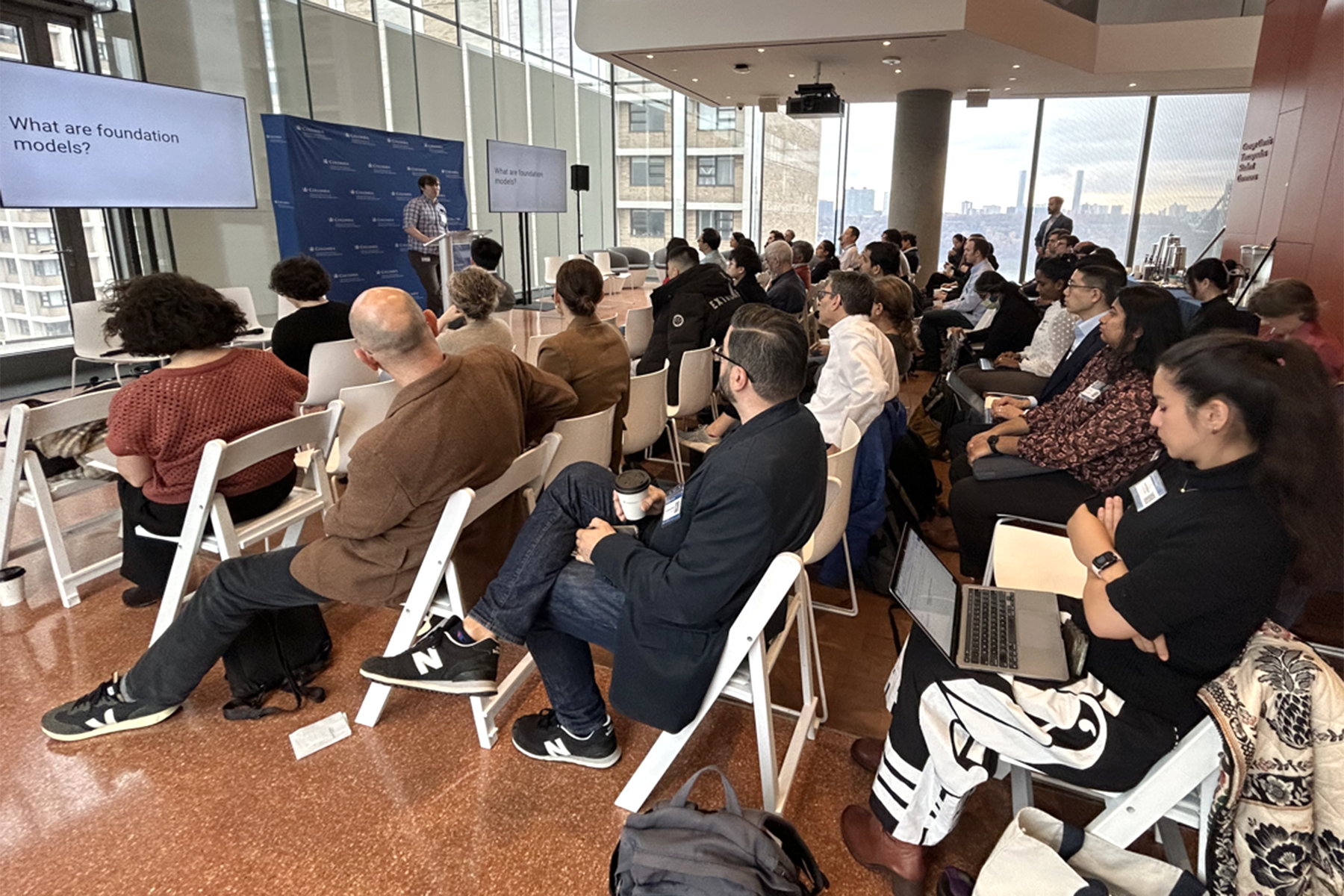 Foundation models are rapidly transforming biomedical research and healthcare delivery. From decoding molecular data to predicting clinical trajectories, they enable scientists to analyze complex, multi-scale datasets and uncover patterns that were previously inaccessible. The AI at the Vagelos College of Physicians and Surgeons (AI@VP&S) Initiative at Columbia University Irving Medical Center hosted a two-day workshop to explore the development and growing role of these models in advancing digital health and biomedicine. The event featured applications spanning the full spectrum of biomedical data, including cellular and molecular biology, electronic health records and real-world signals from wearables and self-tracking technologies.
Foundation models are rapidly transforming biomedical research and healthcare delivery. From decoding molecular data to predicting clinical trajectories, they enable scientists to analyze complex, multi-scale datasets and uncover patterns that were previously inaccessible. The AI at the Vagelos College of Physicians and Surgeons (AI@VP&S) Initiative at Columbia University Irving Medical Center hosted a two-day workshop to explore the development and growing role of these models in advancing digital health and biomedicine. The event featured applications spanning the full spectrum of biomedical data, including cellular and molecular biology, electronic health records and real-world signals from wearables and self-tracking technologies.
As foundation models continue to evolve, this workshop offered a timely opportunity to engage with emerging ideas and help shape the direction of this rapidly advancing field. Through a dynamic mix of presentations, discussions, and networking, participants gained insights into cutting-edge research and real-world applications, while contributing to critical conversations about the future of AI in biomedicine and healthcare.
Workshop Schedule
Day 1
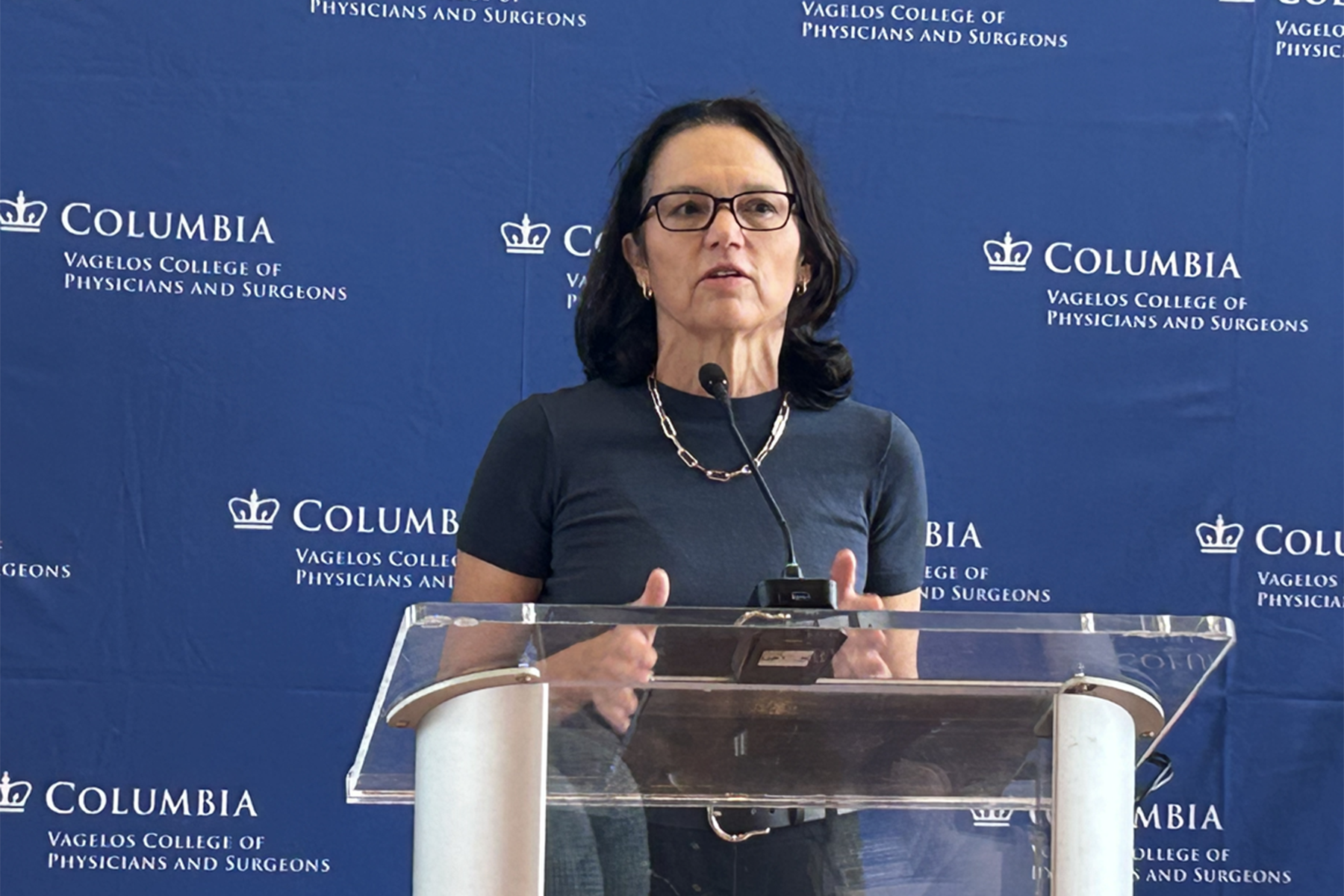
9:00 am – 9:15 am • Opening Remarks
Speakers: Katrina Armstrong (Dean of the Faculties of Health Sciences and the Vagelos College of Physicians and Surgeons
Executive Vice President for Health and Biomedical Sciences, Columbia University), Noémie Elhadad (Director, AI at VP&S Initiative; Chair and Associate Professor, Columbia Department of Biomedical Informatics)
9:15 am – 10:15 am • Lecture: Introduction to Foundation Models in Biology and Healthcare
Presenters: Matthew McDermott (Columbia Dept of Biomedical Informatics), Xi Fu (Columbia Dept of Biomedical Informatics, Program for Mathematical Genomics)
10:15 am – 11:45 am • Panel: Electronic Health Records: Harnessing foundation models to extract rich insights from structured and unstructured clinical data at scale
Speakers: Divya Gopinath (Layer Health), Matthew McDermott (Columbia Dept of Biomedical Informatics), Karthik Natarajan (Columbia Dept of Biomedical Informatics), Fei Wang (Weill Cornell Medicine)
Moderator: Shalmali Joshi (Columbia Dept of Biomedical Informatics)
11:50 am – 1:20 pm • Panel – Biology: Applying foundation models to genomics, proteomics, and molecular representations to accelerate biomedical discovery
Speakers: Mohammed AlQuraishi (Columbia Dept of Systems Biology, Program for Mathematical Genomics), Andrea Califano (Columbia Dept of Systems Biology, Chan Zuckerberg Initiative), Pete Clardy (Google), Xi Fu (Columbia Dept of Biomedical Informatics, Program for Mathematical Genomics)
Moderator: Raul Rabadan (Columbia Dept of Systems Biology, Program for Mathematical Genomics)
1:20 pm – 2:20 pm • Lunch
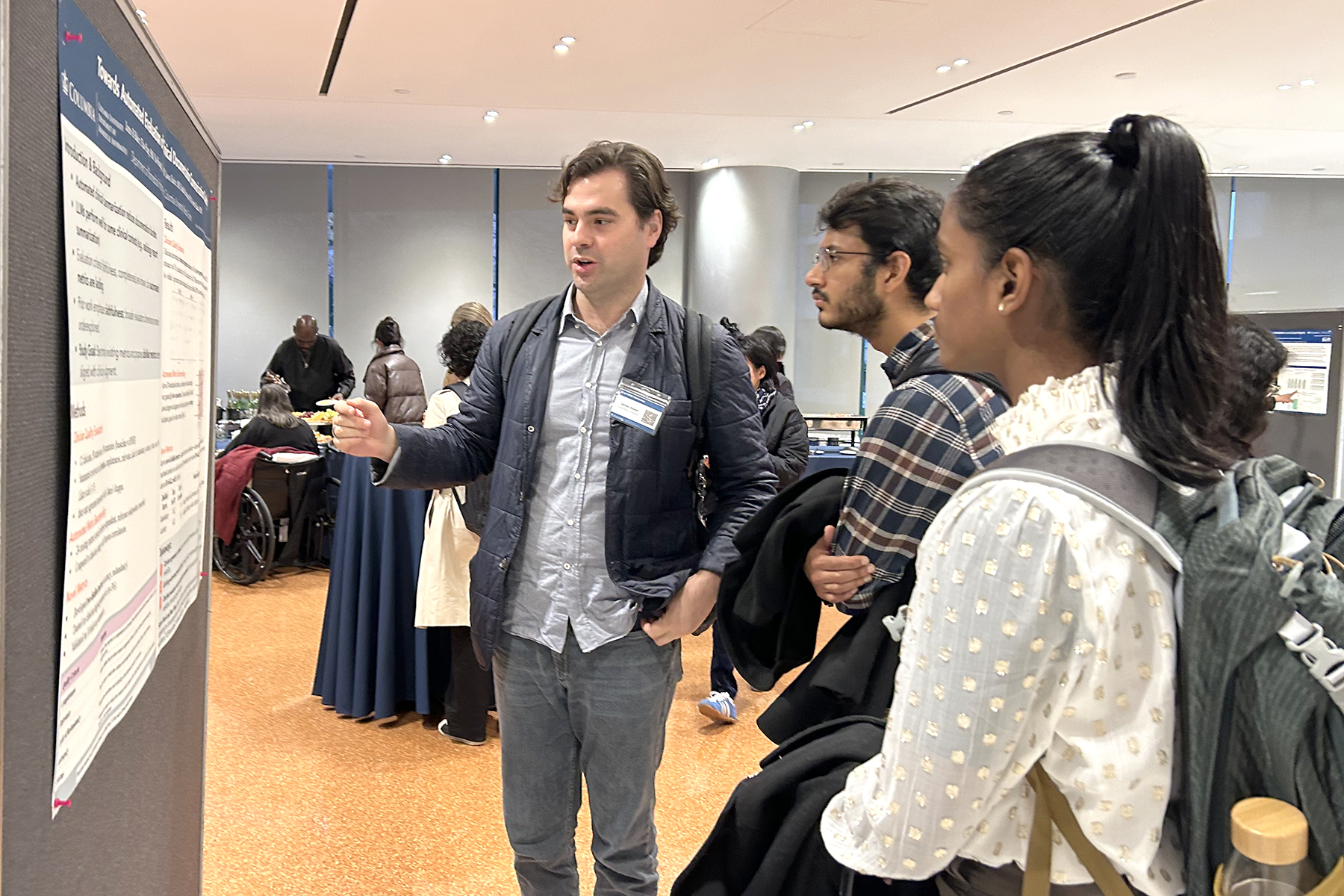 2:20 pm – 4:00 pm • Panel: Patient-Generated Data: Using models to interpret data from wearables, mobile apps, and remote monitoring for continuous patient insights
2:20 pm – 4:00 pm • Panel: Patient-Generated Data: Using models to interpret data from wearables, mobile apps, and remote monitoring for continuous patient insights
Speakers: Noémie Elhadad (Columbia Dept of Biomedical Informatics), Luca Foschini (Sage Bionetworks), Joe Futoma (Apple), Xuhai “Orson” Xu (Columbia Dept of Biomedical Informatics)
Moderator: Lena Mamykina (Columbia Dept of Biomedical Informatics)
4:00 pm – 5:30 pm • Poster Session and Reception
Day 2
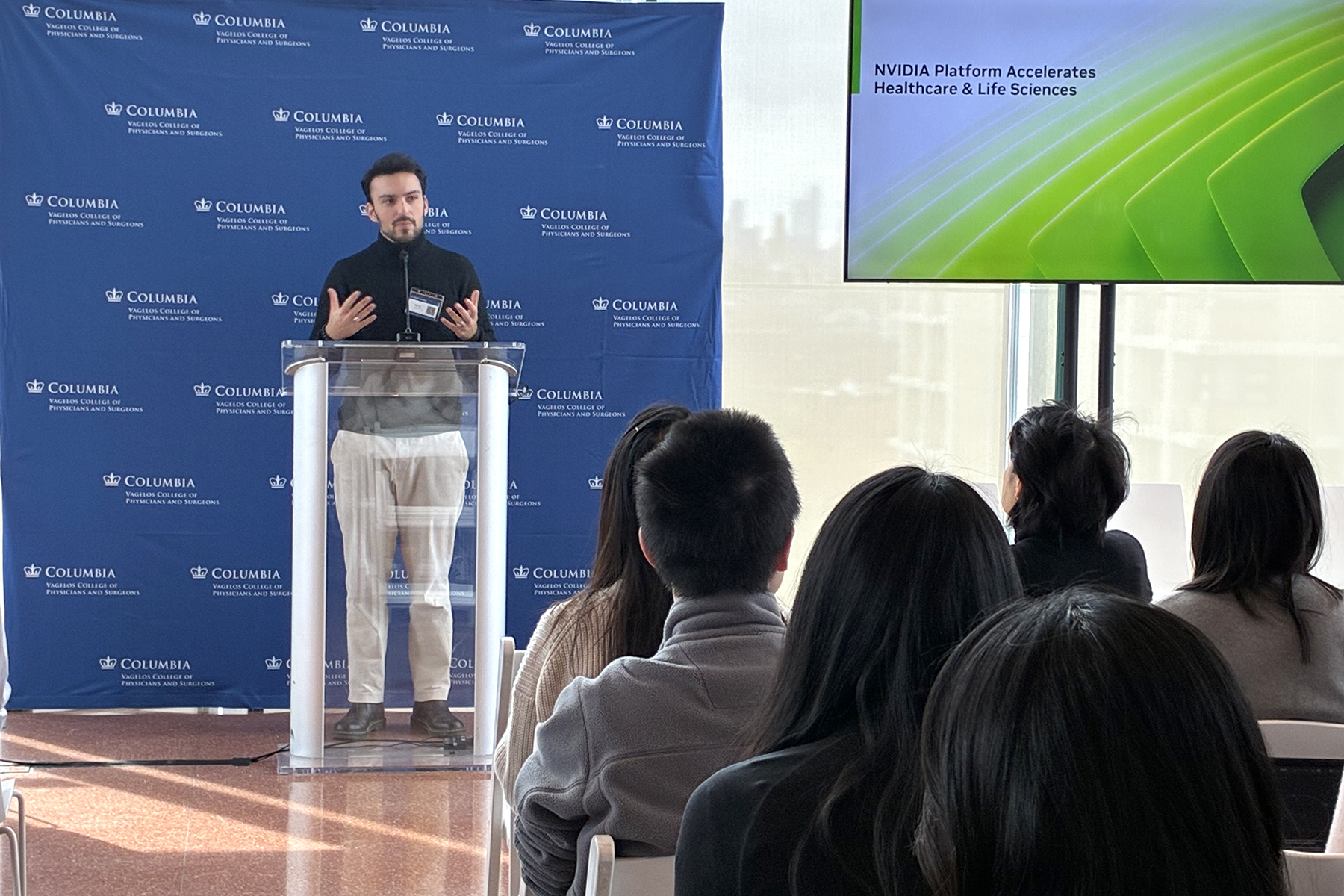
10:00 am – 10:30 am • Keynote: Accelerating Foundation Models in Biology
NVIDIA’s role in enabling the ecosystem
Presenter: Roy Tal (NVIDIA)
10:30 am – 12:00 pm • Panel: Translation to Real-World Applications: Bridging models to practice across clinical and biotech
Speakers: Kyunghyun Cho (Genentech/New York University), Sushravya Raghunath (NewYork-Presbyterian Hospital), Sujaya Srinivasan (Amazon Web Services), Roy Tal (NVIDIA)
Moderator: Timothy Crimmins (Columbia Univ Irving Medical Center)
12:00 pm – 1:00 pm • Lunch
1:00 pm – 2:30 pm • Panel – Human AI Alignment: Addressing robustness, fairness, explainability, and compliance in building responsible and trustworthy AI
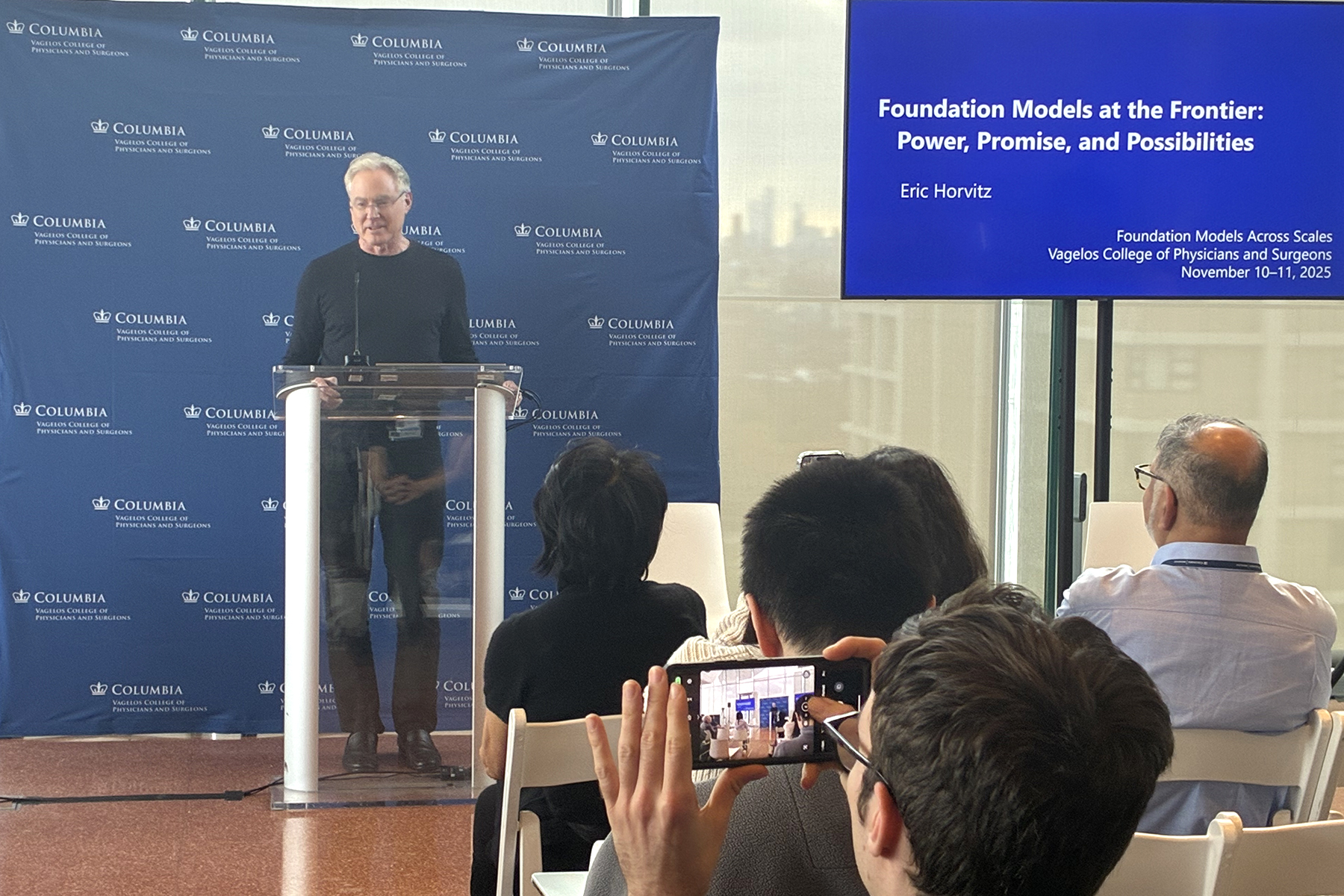
Speakers: Gamze Gursoy (Columbia Dept of Biomedical Informatics), Shalmali Joshi (Columbia Dept of Biomedical Informatics), Smaranda Muresan (Department of Computer Science, Barnard College)
Moderator: Harry Reyes (Columbia Univ Irving Medical Center, Columbia Div of Infectious Diseases)
2:30 pm – 3:00 pm • Keynote: Foundation Models at the Frontier: Power, Promise, and Possibilities
Speaker: Eric Horvitz (Chief Scientific Officer, Microsoft)
3:00 pm – 3:15 pm • Closing remarks
Workshop Speakers
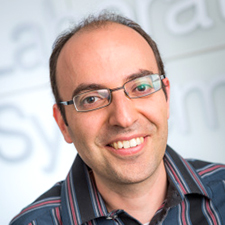 Mohammed AlQuraishi is an Assistant Professor in the Department of Systems Biology and a member of Columbia’s Program for Mathematical Genomics, where he works at the intersection of machine learning, biophysics, and systems biology. His lab develops machine learning models for predicting protein structure and function, protein-ligand interactions, and learned representations of proteins and proteomes. They also apply these models in a proteome-wide fashion to investigate the organization, combinatorial logic, and computational paradigms of signal transduction networks, how these networks vary in human populations, and how they are dysregulated in human diseases, particularly cancer.
Mohammed AlQuraishi is an Assistant Professor in the Department of Systems Biology and a member of Columbia’s Program for Mathematical Genomics, where he works at the intersection of machine learning, biophysics, and systems biology. His lab develops machine learning models for predicting protein structure and function, protein-ligand interactions, and learned representations of proteins and proteomes. They also apply these models in a proteome-wide fashion to investigate the organization, combinatorial logic, and computational paradigms of signal transduction networks, how these networks vary in human populations, and how they are dysregulated in human diseases, particularly cancer.
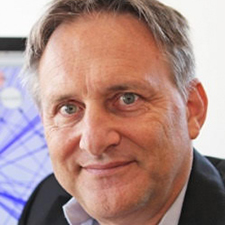 Andrea Califano is the Clyde and Helen Wu Professor of Chemical and Systems Biology at Columbia University Irving Medical Center. In October 2023, he stepped down from his positions as Founding Chair of the Department of Systems Biology and Director of the Columbia Genome Center, to take a new role as the President of the Chan Zuckerberg Biohub New York. The Califano Lab uses a combination of computational and experimental methodologies to reconstruct the regulatory logic of human cells in a genome-wide fashion to identify master regulator proteins responsible for human disease, including cancer and neurodegenerative syndromes. This has resulted in several clinical trials, including a very innovative N-of-1 study for precision cancer medicine. Prof. Califano is also Co-founder of DarwinHealth Inc.
Andrea Califano is the Clyde and Helen Wu Professor of Chemical and Systems Biology at Columbia University Irving Medical Center. In October 2023, he stepped down from his positions as Founding Chair of the Department of Systems Biology and Director of the Columbia Genome Center, to take a new role as the President of the Chan Zuckerberg Biohub New York. The Califano Lab uses a combination of computational and experimental methodologies to reconstruct the regulatory logic of human cells in a genome-wide fashion to identify master regulator proteins responsible for human disease, including cancer and neurodegenerative syndromes. This has resulted in several clinical trials, including a very innovative N-of-1 study for precision cancer medicine. Prof. Califano is also Co-founder of DarwinHealth Inc.
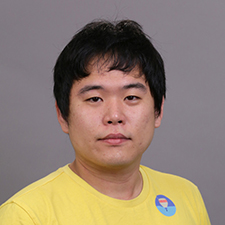 Kyunghyun Cho is a professor of computer science and data science at New York University and an executive director of frontier research at the Prescient Design team within Genentech Research & Early Development (gRED). He became the Glen de Vries Professor of Health Statistics in 2025. He is also a CIFAR Fellow of Learning in Machines & Brains and an Associate Member of the National Academy of Engineering of Korea. He served as a (co-)Program Chair of ICLR 2020, NeurIPS 2022 and ICML 2022. He was one of the three founding Editors-in-Chief of the Transactions on Machine Learning Research (TMLR) until 2024. He was a research scientist at Facebook AI Research from June 2017 to May 2020 and a postdoctoral fellow at University of Montreal until Summer 2015 under the supervision of Prof. Yoshua Bengio, after receiving MSc and PhD degrees from Aalto University April 2011 and April 2014, respectively, under the supervision of Prof. Juha Karhunen, Dr. Tapani Raiko and Dr. Alexander Ilin. He received the Samsung Ho-Am Prize in Engineering in 2021. He tries his best to find a balance among machine learning, natural language processing, and life, but almost always fails to do so.
Kyunghyun Cho is a professor of computer science and data science at New York University and an executive director of frontier research at the Prescient Design team within Genentech Research & Early Development (gRED). He became the Glen de Vries Professor of Health Statistics in 2025. He is also a CIFAR Fellow of Learning in Machines & Brains and an Associate Member of the National Academy of Engineering of Korea. He served as a (co-)Program Chair of ICLR 2020, NeurIPS 2022 and ICML 2022. He was one of the three founding Editors-in-Chief of the Transactions on Machine Learning Research (TMLR) until 2024. He was a research scientist at Facebook AI Research from June 2017 to May 2020 and a postdoctoral fellow at University of Montreal until Summer 2015 under the supervision of Prof. Yoshua Bengio, after receiving MSc and PhD degrees from Aalto University April 2011 and April 2014, respectively, under the supervision of Prof. Juha Karhunen, Dr. Tapani Raiko and Dr. Alexander Ilin. He received the Samsung Ho-Am Prize in Engineering in 2021. He tries his best to find a balance among machine learning, natural language processing, and life, but almost always fails to do so.
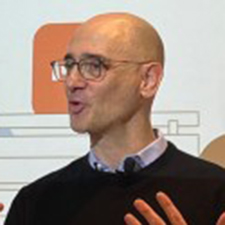 Dr. Pete Clardy is a pulmonary and critical care physician who leads the Clinical Enterprise Team at Google. In this role, he guides the development, evaluation, and platforming of machine learning and generative AI tools designed to help healthcare and life sciences organizations transform complex, multimodal health data.
Dr. Pete Clardy is a pulmonary and critical care physician who leads the Clinical Enterprise Team at Google. In this role, he guides the development, evaluation, and platforming of machine learning and generative AI tools designed to help healthcare and life sciences organizations transform complex, multimodal health data.
Dr. Clardy’s team works closely with Google’s DeepMind, Research, and Cloud teams to create and scale solutions that empower providers to organize biomedical information, simplify clinical workflows, accelerate scientific discovery, and improve patient outcomes. He has been instrumental in the development and deployment of Google’s clinician-facing search and summarization tools and is currently platforming Google’s most advanced generative AI models for use across the health sector.
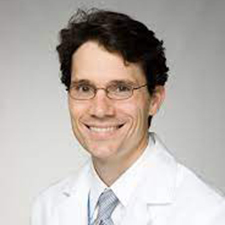 Timothy J. Crimmins received his BS and MD from The George Washington University. He completed residency in internal medicine at The University of Washington in Seattle and board certification in internal medicine in 2001. He completed training in Vascular Medicine at Columbia University through the informal pathway and completed board certification in Vascular Medicine in 2008. Dr. Crimmins serves as Medical Director of the Non-Invasive Vascular Medicine Lab where ultrasound is used for the diagnosis of vascular disorders. Clinical interests include vascular medicine, non-invasive vascular diagnosis, general internal medicine and medical education. He has a master’s certificate in Leadership Development having completed the Master Teacher in Medical Education Program at The George Washington University. His clinical goals of care include patient education, patient-centered care and use of systems to enable high-quality patient care. His education goals include enabling independent thinking and the use of metacongnition to foster an understanding of the underlying thought processes involved in medical decision-making.
Timothy J. Crimmins received his BS and MD from The George Washington University. He completed residency in internal medicine at The University of Washington in Seattle and board certification in internal medicine in 2001. He completed training in Vascular Medicine at Columbia University through the informal pathway and completed board certification in Vascular Medicine in 2008. Dr. Crimmins serves as Medical Director of the Non-Invasive Vascular Medicine Lab where ultrasound is used for the diagnosis of vascular disorders. Clinical interests include vascular medicine, non-invasive vascular diagnosis, general internal medicine and medical education. He has a master’s certificate in Leadership Development having completed the Master Teacher in Medical Education Program at The George Washington University. His clinical goals of care include patient education, patient-centered care and use of systems to enable high-quality patient care. His education goals include enabling independent thinking and the use of metacongnition to foster an understanding of the underlying thought processes involved in medical decision-making.
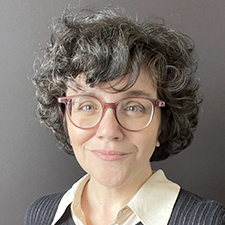 Noémie Elhadad is Associate Professor and Chair of the Department of Biomedical Informatics at Columbia University VP&S (Vagelos College of Physicians and Surgeons) and Director of Medical Information Services at NewYork-Presbyterian. She leads the AI at VP&S Initiative and Eve_n, Columbia University’s research initiative on data-powered women’s health. Her research sits at the intersection of artificial intelligence, human-centered computing, and medicine, with a focus on developing novel machine-learning methods. She designs AI-driven tools to support patients and clinicians, ensuring that the AI systems of the future are safe, effective, and advance medicine.
Noémie Elhadad is Associate Professor and Chair of the Department of Biomedical Informatics at Columbia University VP&S (Vagelos College of Physicians and Surgeons) and Director of Medical Information Services at NewYork-Presbyterian. She leads the AI at VP&S Initiative and Eve_n, Columbia University’s research initiative on data-powered women’s health. Her research sits at the intersection of artificial intelligence, human-centered computing, and medicine, with a focus on developing novel machine-learning methods. She designs AI-driven tools to support patients and clinicians, ensuring that the AI systems of the future are safe, effective, and advance medicine.
 Dr. Luca Foschini is the President and CEO of Sage Bionetworks. Prior to this role, he co-founded and served as Chief Data Scientist at Evidation for 10 years. During his time at Evidation, Dr. Foschini led a team of over 50 health data scientists and shaped the role and requirements for the health data scientist profession. He also led Evidation’s research and development efforts and worked on projects funded by organizations such as NIH, DARPA, and BARDA. Dr. Foschini collaborated with top biopharma companies to provide technology and methodology for collecting and analyzing person-generated health data (PGHD) from sources such as smartphones and wearables in order to measure human health.
Dr. Luca Foschini is the President and CEO of Sage Bionetworks. Prior to this role, he co-founded and served as Chief Data Scientist at Evidation for 10 years. During his time at Evidation, Dr. Foschini led a team of over 50 health data scientists and shaped the role and requirements for the health data scientist profession. He also led Evidation’s research and development efforts and worked on projects funded by organizations such as NIH, DARPA, and BARDA. Dr. Foschini collaborated with top biopharma companies to provide technology and methodology for collecting and analyzing person-generated health data (PGHD) from sources such as smartphones and wearables in order to measure human health.
Dr. Foschini holds a PhD in Computer Science from the University of California, Santa Barbara and a Master’s degree in Computer Engineering from the Sant’Anna School of Pisa. He has also conducted theoretical computer science and cybersecurity research in academia and industry, including research positions at Google and Ask.com.
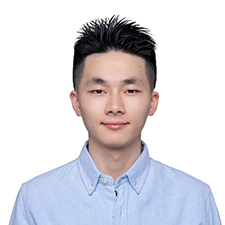 Xi Fu is a 5th-year Ph.D. candidate in the Program of Mathematical Genomics at Columbia University Irving Medical Center. His research focuses on transcriptional regulation, the role of transcription factors in various cancers, and the development of foundation models for biological discovery. He earned a bachelor’s degree in Cell and Molecular Biology and an M.Phil. in Computer Science from The Chinese University of Hong Kong, where he studied the role of non-coding variants in Hirschsprung’s disease and neural crest cell migration.
Xi Fu is a 5th-year Ph.D. candidate in the Program of Mathematical Genomics at Columbia University Irving Medical Center. His research focuses on transcriptional regulation, the role of transcription factors in various cancers, and the development of foundation models for biological discovery. He earned a bachelor’s degree in Cell and Molecular Biology and an M.Phil. in Computer Science from The Chinese University of Hong Kong, where he studied the role of non-coding variants in Hirschsprung’s disease and neural crest cell migration.
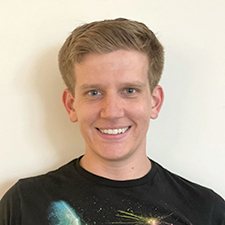 Joe Futoma joined Apple as an ML research scientist in 2020, where he works on machine learning for health and wearables, focusing on foundation models for time series data. Before joining Apple, he was a Postdoctoral Fellow at Harvard’s Center for Research on Computation and Society. He earned his PhD in Statistical Science from Duke University and still considers himself a recovering Bayesian.
Joe Futoma joined Apple as an ML research scientist in 2020, where he works on machine learning for health and wearables, focusing on foundation models for time series data. Before joining Apple, he was a Postdoctoral Fellow at Harvard’s Center for Research on Computation and Society. He earned his PhD in Statistical Science from Duke University and still considers himself a recovering Bayesian.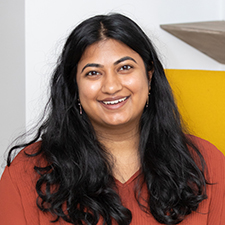 Divya Gopinath is a founder and head of engineering at Layer Health, a Series A startup spun out of MIT focused on building the AI layer for medical chart review. At Layer, she leads work on leveraging foundation models for longitudinal chart understanding and information extraction in live products. Divya is an ML engineer and architect with deep expertise in trustworthy AI and deploying ML for healthcare. She previously received her BS and MEng from MIT, where she conducted research in the Clinical Machine Learning group, and was also a founding engineer at TruEra (acquired by Snowflake).
Divya Gopinath is a founder and head of engineering at Layer Health, a Series A startup spun out of MIT focused on building the AI layer for medical chart review. At Layer, she leads work on leveraging foundation models for longitudinal chart understanding and information extraction in live products. Divya is an ML engineer and architect with deep expertise in trustworthy AI and deploying ML for healthcare. She previously received her BS and MEng from MIT, where she conducted research in the Clinical Machine Learning group, and was also a founding engineer at TruEra (acquired by Snowflake).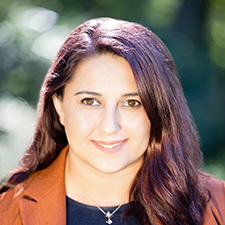 Gamze Gürsoy is the Herbert Irving Assistant Professor of Biomedical Informatics at Columbia University and a Core Faculty Member at the New York Genome Center. Her lab develops computational and privacy-preserving approaches for genomics and machine learning in healthcare, with a focus on secure data sharing and federated learning. She leads multiple NIH- and foundation-funded projects on genomic privacy and AI in medicine.
Gamze Gürsoy is the Herbert Irving Assistant Professor of Biomedical Informatics at Columbia University and a Core Faculty Member at the New York Genome Center. Her lab develops computational and privacy-preserving approaches for genomics and machine learning in healthcare, with a focus on secure data sharing and federated learning. She leads multiple NIH- and foundation-funded projects on genomic privacy and AI in medicine.
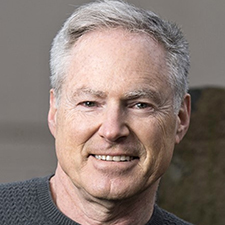 Eric Horvitz is Microsoft’s Chief Scientific Officer, where he leads strategic initiatives at the intersection of science, technology, and society, with emphasis on frontier advances in artificial intelligence, the biosciences, and healthcare. His research contributions span AI methods for learning, reasoning, and decision-making under uncertainty. He has advised scientific, technical, and governmental organizations on directions in science, technology, and public policy. Dr. Horvitz is a member of the National Academy of Engineering and the American Academy of Arts and Sciences, a fellow of the Association for the Advancement of AI (AAAI), American College of Medical Informatics (ACMI), Association for Computing Machinery (ACM), and the American Association for the Advancement of Science (AAAS), and a recipient of the Feigenbaum Prize and the Allen Newell Award. He earned his PhD and MD from Stanford University.
Eric Horvitz is Microsoft’s Chief Scientific Officer, where he leads strategic initiatives at the intersection of science, technology, and society, with emphasis on frontier advances in artificial intelligence, the biosciences, and healthcare. His research contributions span AI methods for learning, reasoning, and decision-making under uncertainty. He has advised scientific, technical, and governmental organizations on directions in science, technology, and public policy. Dr. Horvitz is a member of the National Academy of Engineering and the American Academy of Arts and Sciences, a fellow of the Association for the Advancement of AI (AAAI), American College of Medical Informatics (ACMI), Association for Computing Machinery (ACM), and the American Association for the Advancement of Science (AAAS), and a recipient of the Feigenbaum Prize and the Allen Newell Award. He earned his PhD and MD from Stanford University.
Dr. Horvitz was recently appointed adjunct professor in the Department of Biomedical Informatics at Columbia University, as part of a collaborative research initiative within the department.
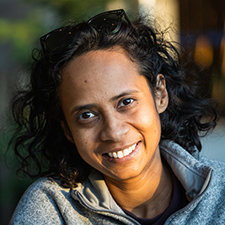 Shalmali Joshi is an Assistant Professor in the Department of Biomedical Informatics at Columbia University, where she leads the reAIM Lab. She is a member of the Data Science Institute and holds affiliations with the SNF Center for Precision Psychiatry & Mental Health and the Department of Computer Science. Dr. Joshi’s research focuses on the development of artificial intelligence and machine learning methodologies to advance scientific inference and predictive modeling in the biomedical sciences. She develops adaptive foundation models for health and medical observational data, and novel approaches for analyzing high-dimensional, multimodal data to enhance the robustness of inference and prediction in health and medicine. Applications of her work span multiple clinical domains, including psychiatry, cardiology, radiology, rheumatology, and neurocritical care.
Shalmali Joshi is an Assistant Professor in the Department of Biomedical Informatics at Columbia University, where she leads the reAIM Lab. She is a member of the Data Science Institute and holds affiliations with the SNF Center for Precision Psychiatry & Mental Health and the Department of Computer Science. Dr. Joshi’s research focuses on the development of artificial intelligence and machine learning methodologies to advance scientific inference and predictive modeling in the biomedical sciences. She develops adaptive foundation models for health and medical observational data, and novel approaches for analyzing high-dimensional, multimodal data to enhance the robustness of inference and prediction in health and medicine. Applications of her work span multiple clinical domains, including psychiatry, cardiology, radiology, rheumatology, and neurocritical care.
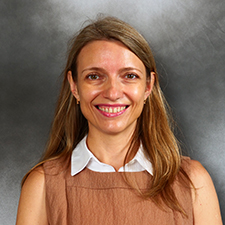 Lena Mamykina earned a master’s and PhD in human-computer interaction and human-centered computing at the George Institute of Technology in Atlanta. She earned a master’s and completed a postdoc in biomedical informatics at Columbia University. Her bachelor’s degree in computer science is from the Ukrainian State Maritime Technical University. Dr. Mamykina’s broad research interests include an individual’s sensemaking and problem-solving in context of health management, collective sensemaking within online health support communities, clinical reasoning and decision-making, communication and coordination of work in clinical teams, and ways to support these practices with informatics interventions. She also focuses on analysis of health information technologies and how they are used among critical care teams, as well as social computing platforms for facilitating knowledge sharing within clinical communities, and within online health support groups.
Lena Mamykina earned a master’s and PhD in human-computer interaction and human-centered computing at the George Institute of Technology in Atlanta. She earned a master’s and completed a postdoc in biomedical informatics at Columbia University. Her bachelor’s degree in computer science is from the Ukrainian State Maritime Technical University. Dr. Mamykina’s broad research interests include an individual’s sensemaking and problem-solving in context of health management, collective sensemaking within online health support communities, clinical reasoning and decision-making, communication and coordination of work in clinical teams, and ways to support these practices with informatics interventions. She also focuses on analysis of health information technologies and how they are used among critical care teams, as well as social computing platforms for facilitating knowledge sharing within clinical communities, and within online health support groups.
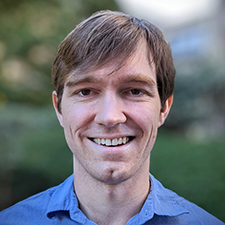 Matthew McDermott is Assistant Professor of Biomedical Informatics at Columbia University. His research is focused on building high-capacity “foundation models” and other representation learning systems over EHR data. Some of his key prior works include Clinical BERT, one of the most widely used pre-trained clinical language models; Structure-inducing Pre-training, a framework for pre-training that enables incorporating domain-specific external knowledge with provable guarantees; and multiple software packages for performing machine learning at scale over structured EHR data, including the recent ESGPT package and MEDS framework.
Matthew McDermott is Assistant Professor of Biomedical Informatics at Columbia University. His research is focused on building high-capacity “foundation models” and other representation learning systems over EHR data. Some of his key prior works include Clinical BERT, one of the most widely used pre-trained clinical language models; Structure-inducing Pre-training, a framework for pre-training that enables incorporating domain-specific external knowledge with provable guarantees; and multiple software packages for performing machine learning at scale over structured EHR data, including the recent ESGPT package and MEDS framework.
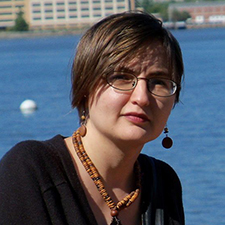 Smaranda Muresan is an Associate Professor and the Associate Chair of the Department of Computer Science at Barnard College, Columbia University. Before joining Barnard in 2024, she was a Research Scientist at the Data Science Institute at Columbia University. Her research focuses on human-centric Natural Language Processing for social good and responsible computing. She develops theory-guided and knowledge-aware computational models for understanding and generating language in context (e.g., visual, social, multilingual, multicultural) with applications to computational social science, education, public health and creativity support. Recently, her research interests include explainable models and human-AI collaboration frameworks for high-quality datasets creation, helping humans solve tasks, and aligning AI systems with human values.
Smaranda Muresan is an Associate Professor and the Associate Chair of the Department of Computer Science at Barnard College, Columbia University. Before joining Barnard in 2024, she was a Research Scientist at the Data Science Institute at Columbia University. Her research focuses on human-centric Natural Language Processing for social good and responsible computing. She develops theory-guided and knowledge-aware computational models for understanding and generating language in context (e.g., visual, social, multilingual, multicultural) with applications to computational social science, education, public health and creativity support. Recently, her research interests include explainable models and human-AI collaboration frameworks for high-quality datasets creation, helping humans solve tasks, and aligning AI systems with human values.
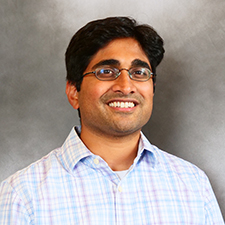 Karthik Natarajan is an Assistant Professor in the Department Biomedical Informatics at Columbia University. He received his BS in computer science at the University of Texas at Austin. After working in the technology sector, he went on to obtain his PhD in biomedical informatics at Columbia University. Dr. Natarajan’s research interests are in operationalizing clinical informatics solutions. His specific area of interest is in applying scalable information retrieval and text processing methods on clinical data in order to build applications that will support both health professionals and researchers. Dr. Natarajan is the Co-Director of the Biomedical Informatics Resource in the CTSA and holds operational responsibilities overseeing some clinical applications at New York Presbyterian Hospital. He is also an active member of the Observational Health Data Sciences and Informatics (OHDSI) collaborative and oversees the local instances of OHDSI at Columbia and NYPH.
Karthik Natarajan is an Assistant Professor in the Department Biomedical Informatics at Columbia University. He received his BS in computer science at the University of Texas at Austin. After working in the technology sector, he went on to obtain his PhD in biomedical informatics at Columbia University. Dr. Natarajan’s research interests are in operationalizing clinical informatics solutions. His specific area of interest is in applying scalable information retrieval and text processing methods on clinical data in order to build applications that will support both health professionals and researchers. Dr. Natarajan is the Co-Director of the Biomedical Informatics Resource in the CTSA and holds operational responsibilities overseeing some clinical applications at New York Presbyterian Hospital. He is also an active member of the Observational Health Data Sciences and Informatics (OHDSI) collaborative and oversees the local instances of OHDSI at Columbia and NYPH.
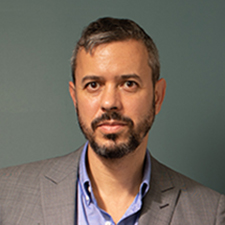 Raul Rabadan is the Gerald and Janet Carrus Professor in the Departments of Systems Biology, Biomedical Informatics and Surgery at Columbia University. He is the director of the Program for Mathematical Genomics (PMG) and the Center for Topology of Cancer Evolution and Heterogeneity. His research interest focuses on developing mathematical, statistical, and computational approaches to model and understand the dynamics of biological systems.
Raul Rabadan is the Gerald and Janet Carrus Professor in the Departments of Systems Biology, Biomedical Informatics and Surgery at Columbia University. He is the director of the Program for Mathematical Genomics (PMG) and the Center for Topology of Cancer Evolution and Heterogeneity. His research interest focuses on developing mathematical, statistical, and computational approaches to model and understand the dynamics of biological systems.
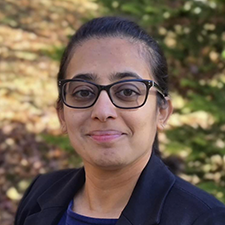 Sushravya (Sush) Raghunath is the Director of Data Science at NewYork Presbyterian (NYP). She holds a PhD in Biomedical Engineering and Physiology from the Mayo Clinic College of Medicine. Her work has centered on developing and deploying innovative data-driven machine learning technologies that leverage large scale clinical data, including chest CT scans, electrocardiograms, and echocardiograms, for early disease detection and prediction. At NYP, Sush leads the translation and operationalization of machine learning and AI applications.
Sushravya (Sush) Raghunath is the Director of Data Science at NewYork Presbyterian (NYP). She holds a PhD in Biomedical Engineering and Physiology from the Mayo Clinic College of Medicine. Her work has centered on developing and deploying innovative data-driven machine learning technologies that leverage large scale clinical data, including chest CT scans, electrocardiograms, and echocardiograms, for early disease detection and prediction. At NYP, Sush leads the translation and operationalization of machine learning and AI applications.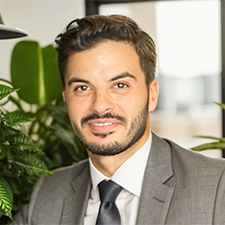 Harry Reyes Nieva is a Postdoctoral Research Scientist in the Department of Medicine, Division of Infectious Diseases at Columbia University Irving Medical Center and an AInet Fellow for Safety and Security in AI through the German Academic Exchange Service, Deutscher Akademischer Austauschdienst. He earned his PhD in the Department of Biomedical Informatics at Columbia University while concurrently a Visiting Postgraduate Research Fellow in the Department of Medicine at Harvard Medical School. He also holds a Master of Applied Science from the Johns Hopkins Bloomberg School of Public Health and Bachelor of Arts from Yale University. Prior to his doctoral training in informatics and AI, he worked within the Strategic Information Division of the U.S. President’s Emergency Plan for AIDS Relief (PEPFAR) at Harvard, where he contributed to efforts to expand antiretroviral therapy and strengthen data systems to combat the global HIV/AIDS epidemic. Drawing on more than fifteen years of domestic and international experience in clinical informatics and public health practice, Dr. Reyes Nieva’s research focuses on developing and applying responsible, human-centered AI to advance learning health systems and precision population health.
Harry Reyes Nieva is a Postdoctoral Research Scientist in the Department of Medicine, Division of Infectious Diseases at Columbia University Irving Medical Center and an AInet Fellow for Safety and Security in AI through the German Academic Exchange Service, Deutscher Akademischer Austauschdienst. He earned his PhD in the Department of Biomedical Informatics at Columbia University while concurrently a Visiting Postgraduate Research Fellow in the Department of Medicine at Harvard Medical School. He also holds a Master of Applied Science from the Johns Hopkins Bloomberg School of Public Health and Bachelor of Arts from Yale University. Prior to his doctoral training in informatics and AI, he worked within the Strategic Information Division of the U.S. President’s Emergency Plan for AIDS Relief (PEPFAR) at Harvard, where he contributed to efforts to expand antiretroviral therapy and strengthen data systems to combat the global HIV/AIDS epidemic. Drawing on more than fifteen years of domestic and international experience in clinical informatics and public health practice, Dr. Reyes Nieva’s research focuses on developing and applying responsible, human-centered AI to advance learning health systems and precision population health.
 Sujaya Srinivasan is the Genomics and Research Technical Lead at Amazon Web Services, where she drives innovation at the intersection of artificial intelligence and life sciences. With over 15 years of expertise spanning software development, precision oncology, clinical genomics, and pharmaceutical research, she has a unique blend of deep technical knowledge with bioinformatics expertise. Sujaya is passionate about leveraging cloud technologies and AI to accelerate scientific discovery and research in genomics and life sciences. Her interests are in translating cutting-edge computational insights into real-world clinical applications that can improve patient outcomes.
Sujaya Srinivasan is the Genomics and Research Technical Lead at Amazon Web Services, where she drives innovation at the intersection of artificial intelligence and life sciences. With over 15 years of expertise spanning software development, precision oncology, clinical genomics, and pharmaceutical research, she has a unique blend of deep technical knowledge with bioinformatics expertise. Sujaya is passionate about leveraging cloud technologies and AI to accelerate scientific discovery and research in genomics and life sciences. Her interests are in translating cutting-edge computational insights into real-world clinical applications that can improve patient outcomes.
 Roy Tal is a Senior Alliance Manager for BioNeMo, NVIDIA’s digital biology platform for accelerating AI-driven drug discovery and biomolecular research. In this role, he drives the adoption of NVIDIA’s AI technologies within the computational biology ecosystem, with a focus on enabling large-scale foundation model developers and fostering academic-industry collaborations. Prior to NVIDIA, Roy co-founded and served as CTO of Ro5, an AI drug discovery startup that was acquired by Juvenescence Therapeutics. His work involved developing state-of-the-art machine learning models for molecular design and translation of novel technologies to real-world drug development programs, including a major partnership with Reata Pharmaceuticals that culminated in the FDA approval of the first-ever treatment for Friedreich’s Ataxia. Roy completed his BSc in Biomedical Science and Pharmacology at Imperial College London, an MS in Cognitive Engineering and AI at École Normale Supérieure (PSL) and Sorbonne University, as well as an MSc in Brain and Mind Sciences specialized in Computational Neuroscience at UCL.
Roy Tal is a Senior Alliance Manager for BioNeMo, NVIDIA’s digital biology platform for accelerating AI-driven drug discovery and biomolecular research. In this role, he drives the adoption of NVIDIA’s AI technologies within the computational biology ecosystem, with a focus on enabling large-scale foundation model developers and fostering academic-industry collaborations. Prior to NVIDIA, Roy co-founded and served as CTO of Ro5, an AI drug discovery startup that was acquired by Juvenescence Therapeutics. His work involved developing state-of-the-art machine learning models for molecular design and translation of novel technologies to real-world drug development programs, including a major partnership with Reata Pharmaceuticals that culminated in the FDA approval of the first-ever treatment for Friedreich’s Ataxia. Roy completed his BSc in Biomedical Science and Pharmacology at Imperial College London, an MS in Cognitive Engineering and AI at École Normale Supérieure (PSL) and Sorbonne University, as well as an MSc in Brain and Mind Sciences specialized in Computational Neuroscience at UCL. 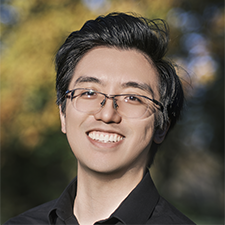 Xuhai “Orson” Xu is an assistant professor at Columbia DBMI. He completed his postdoc at the MIT Department of Electrical Engineering and Computer Science. He earned his PhD degree in Information Science at the University of Washington, and his bachelor’s degree in Industrial Engineering and Computer Science at Tsinghua University. Dr. Xu’s research straddles multiple disciplines, including human-computer interaction, ubiquitous computing, artificial intelligence, and health. Using everyday sensor data and health records, he develops deployable behavior modeling algorithms to monitor various health and well-being conditions. Leveraging these models, he further designs and deploys intelligent intervention and interaction techniques that help end-users and patients achieve personal health and well-being goals, as well as support health experts in making decisions.
Xuhai “Orson” Xu is an assistant professor at Columbia DBMI. He completed his postdoc at the MIT Department of Electrical Engineering and Computer Science. He earned his PhD degree in Information Science at the University of Washington, and his bachelor’s degree in Industrial Engineering and Computer Science at Tsinghua University. Dr. Xu’s research straddles multiple disciplines, including human-computer interaction, ubiquitous computing, artificial intelligence, and health. Using everyday sensor data and health records, he develops deployable behavior modeling algorithms to monitor various health and well-being conditions. Leveraging these models, he further designs and deploys intelligent intervention and interaction techniques that help end-users and patients achieve personal health and well-being goals, as well as support health experts in making decisions.
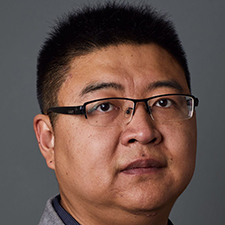 Fei Wang is currently the Associate Dean of Artificial Intelligence and Data Science at Weill Cornell Medicine (WCM), where he is also a tenured Professor and Chief of the Division of Health Informatics and Artificial Intelligence in the Department of Population Health Sciences (primary), and a Professor in the Department of Emergency Medicine (secondary). Dr. Wang is the Founding Director of the WCM Institute of AI for Digital Health (AIDH) and the Founding Co-Director of the WCM Data Coordination Center. He is a Senior Technical Advisor at New York Presbyterian hospital, a Senior Faculty Fellow of Clinical Artificial Intelligence at Cornell Tech, and an Adjunct Scientist at Hospital for Special Surgery (HSS). His research interest is machine learning and artificial intelligence in biomedicine.
Fei Wang is currently the Associate Dean of Artificial Intelligence and Data Science at Weill Cornell Medicine (WCM), where he is also a tenured Professor and Chief of the Division of Health Informatics and Artificial Intelligence in the Department of Population Health Sciences (primary), and a Professor in the Department of Emergency Medicine (secondary). Dr. Wang is the Founding Director of the WCM Institute of AI for Digital Health (AIDH) and the Founding Co-Director of the WCM Data Coordination Center. He is a Senior Technical Advisor at New York Presbyterian hospital, a Senior Faculty Fellow of Clinical Artificial Intelligence at Cornell Tech, and an Adjunct Scientist at Hospital for Special Surgery (HSS). His research interest is machine learning and artificial intelligence in biomedicine.
Workshop Organizers
Noémie Elhadad, PhD
Chair of the Department of Biomedical Informatics at Columbia Vagelos College of Physicians and Surgeons
Director of Medical Information Services at NewYork-Presbyterian Hospital
Director of AI at VP&S Initiative

Raul Rabadan, PhD
Gerald and Janet Carrus Professor in the Departments of Systems Biology, Biomedical Informatics and Surgery at Columbia Vagelos College of Physicians and Surgeons
Director of the Program for Mathematical Genomics

Assistant Professor in the Department of Systems Biology, Columbia Vagelos College of Physicians and Surgeons

Assistant Professor in the Department of Biomedical Informatics at Columbia Vagelos College of Physicians and Surgeons

